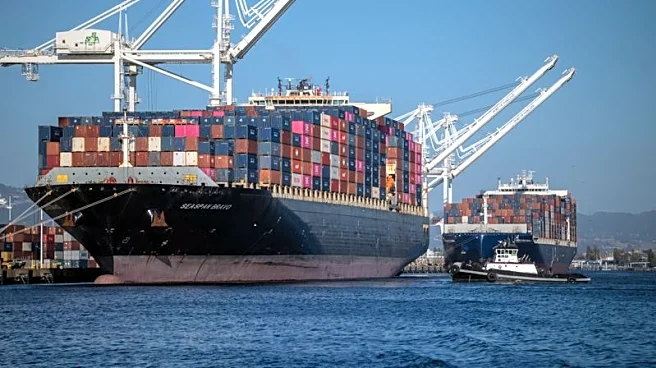By Howard Schneider
WASHINGTON (Reuters) -The massive tariffs proposed by President Donald Trump on "Liberation Day" in April put the U.S. dollar's role as the world's anchor currency at risk, while the administration's
eventual climbdown to more modest rates has likely left it secure, new economic research has concluded.
The research found that the country's "exorbitant privilege," with the dollar's role as a risk-free asset drawing investment to the U.S. and allowing the country to borrow at lower rates, is tightly bound to open trade that couples the fate of other economies to what happens in the U.S.
Protectionism would weaken that connection and the benefits that go with it, with a tariff rate of 26% estimated as a tipping point that would allow competing currencies like the euro to become more central to the global economy, authors including Boston University economics professor Tarek Hassan, San Francisco Fed vice president Thomas Mertens, and Jingye Wang of the Renmin University of China, concluded from their research.
The average rates imposed by Trump, estimated now at around 17% to 18%, stayed in a range the authors said might weaken but not fully undermine the dollar's role.
"The dollar emerges as the safest currency in the world because shocks that affect the United States move a large share of global demand," the authors wrote, driving demand for dollars as a hedge against currency and other risks.
"This safe-haven feature of the U.S. dollar is the key force that lowers U.S. interest rates, makes it a destination for global investment, and the target of exchange rate stabilizations," they wrote. "A sustained trade war would threaten this equilibrium."
The research, released as part of a Brookings Institution economic conference this week, comes during heightened attention to the dollar's role in the world and how that might change under Trump.
A New York Fed conference this week will examine the issue, while investors try to parse conflicting data for evidence of any change.
A recent decline in the value of the dollar could be a warning sign, yet at the same time yields on U.S. Treasuries have fallen and stocks have hit record highs - a sign of continued demand for dollar-based securities that somewhat allays concerns the U.S. was at risk of losing its global status.
But, the authors warned, that can't be taken for granted, pointing to last spring when markets sank in tandem.
"The fact that U.S. equities, Treasury bonds, and the dollar lost value at a time of disruption for international markets represents a stark departure from the usual pattern in which the dollar appreciates in times of global stress," the authors wrote, referring to the backlash to Trump's original tariff plans in April. "The dollar's status as a safe-haven currency relies critically on relatively free trade: isolating the U.S. economy from world trade flows mitigates the forces that make the U.S. dollar the safest currency in the world."
(Reporting by Howard Schneider; Editing by Andrea Ricci)










